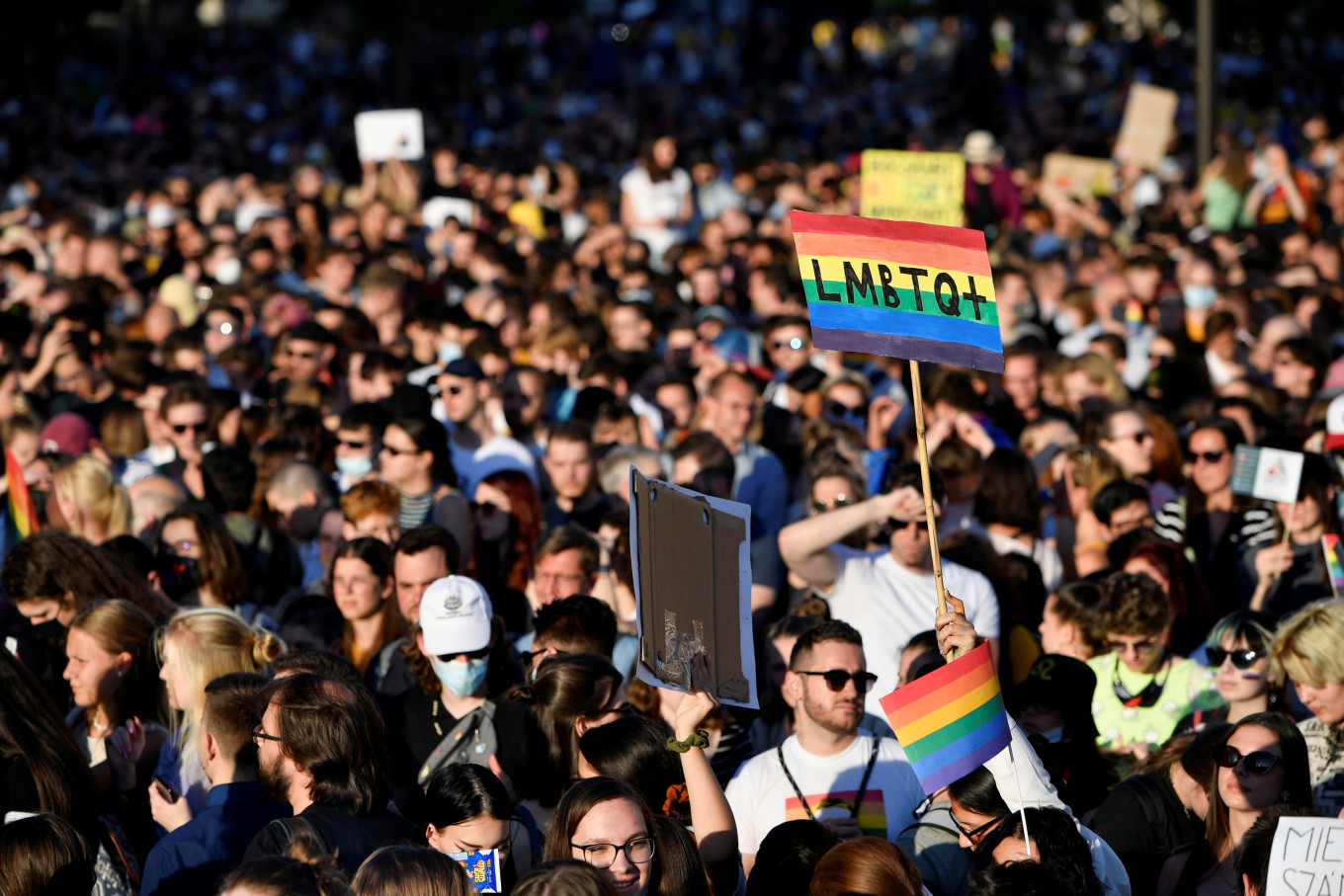Popular Reads
Top Results
Can't find what you're looking for?
View all search resultsPopular Reads
Top Results
Can't find what you're looking for?
View all search resultsHarry Potter, 'Friends' may fall victim to Hungary's anti-LGBT law - broadcaster
Prime Minister Viktor Orban nationalist government pushes an anti-LGBT law through parliament despite criticism from rights groups and the European Union.
Change text size
Gift Premium Articles
to Anyone
T
he largest broadcasters in Hungary criticised a new law banning the "display and promotion of homosexuality" among under-18s as a threat to freedom of expression, and one said it could impact showings of some Harry Potter films and classic TV shows.
Prime Minister Viktor Orban's nationalist government pushed the law through parliament on Tuesday despite criticism from rights groups and the European Union, which said it could result in a loss of development funds for Hungary.
Orban and his ruling Fidesz party, which faces a tight election race next April, have increasingly railed against LGBT+ people and immigrants as part of their self-styled illiberal regime, which has deeply divided Hungarians.
German media giant RTL's Hungarian unit, the country's top broadcaster by audience, issued a statement saying it "condemned homophobia... We worry that the bill gravely harms freedom of expression, human rights and basic freedoms."
Other major broadcasters including HBO, SPI International and A+E Networks joined RTL's statement. An RTL spokesman said it would come up later with a strategy to deal with the new legislation.
The law says it aims to "defend the right of children to an identity that conforms to their birth gender", and bans content for minors that "promotes or depicts gender change and homosexuality". The same rules apply for advertisements.
It has further highlighted a growing rift in the EU between socially liberal western nations, where same-sex marriages are commonplace, and more conservative ex-communist countries in the east. Staunchly Catholic Poland has also clashed with Brussels over its stance on cultural issues including LGBT+ rights.
RTL said Hungary's new law could provide grounds for banning family favourites from from prime time TV because they touch on homosexuality in some manner.
Restrictions
"Based on this, works like 'Billy Elliott', 'Philadelphia', 'Bridget Jones' Diary', or even some Harry Potter films would only be shown late at night," RTL said. "Series like 'Modern Family' would be banned, as would some episodes of 'Friends'."
The law will cause significant harm to the media business and makes it more difficult for all Hungarians to access certain kinds of content, the broadcaster added.
The government and the Fidesz deputy who submitted the bill did not reply to Reuters' requests for comment on the possible impact of the law on programming.
Other media companies said in the statement that they were "stepping up together to support diversity and against discrimination of the non-heterosexual community".
They did not say how they might change their programming.
In separate emailed comments to Reuters, HBO owner WarnerMedia said: "We stand against all forms of homophobia, prejudice or discrimination. The enduring power of all of our stories can open our eyes to the world, to each other and to new and different perspectives."
Viacom and A+E spokesmen did not immediately reply to Reuters' requests for comment. Global streaming giant Netflix, which did not join the protest, did not respond immediately to a Reuters request for comment.
The Hungarian Association of Advertisers (MRSZ) also criticised the new law.
"Excluding sexual minorities from mass media hinders responsible and colourful portrayals of the world" in line with the values of tolerance and acceptance," it said in a statement.
RTL morning show anchor Mark Lakatos, who is openly gay, accused Fidesz of hypocrisy and joked that he would now "lie every morning" about being in love with a female colleague.
Critics have drawn a parallel between Hungary's legislation and Russia's 2013 law that bans disseminating "propaganda on non-traditional sexual relations" among young Russians.
In Turkey, radio and television watchdog RTUK assumed sweeping oversight over online content two years ago, including streaming platforms like Netflix and online news outlets, alarming rights groups who said it could lead to greater censorship of LGBT+ content.











